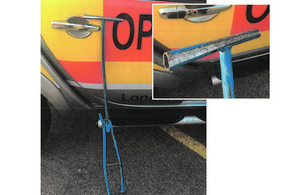The Regulator of Social Housing has published today (23 January 2019) an updated report on the social housing sector’s performance on value for money.
In April 2018, the regulator introduced a new VfM Standard, which includes expectations that boards of registered providers are optimising use of their assets and their resources and demonstrate to stakeholders their approach to achieving and improving VfM in the delivery of their objectives.
As part of this new approach to VfM in the sector the regulator has defined a standard set of VfM metrics that providers report on through their annual accounts. Providers are also required to set their own VfM targets and report on performance against those targets.
Whilst this is the second year in which we have published a report on the sector’s performance against the standard metrics, it is the first year in which providers have been expected to report against their own targets. Setting targets and reporting against them enables providers to be transparent and accountable to their stakeholders and improves their effectiveness and efficiency, while enabling meaningful comparison with similar providers.
The quality of reporting by registered providers has been mixed. Several providers’ reports had a golden thread running through them and included a clear set of strategic objectives and suitably aligned, measurable targets with historic performance against these. They provided brief explanations where targets were not achieved and future targets and plans. Some also included useful information about how investment and maintenance decisions were taken.
Other providers’ reports were less transparent. They either did not include targets or had vague or generic objectives which did not clearly relate to the provider’s business plan or activities; and ignored or failed to explain areas where performance did not meet target, and how it would be improved. In addition, some reports adjusted measures from previous years making it difficult for both internal and external stakeholders to achieve a realistic view of a provider’s performance.
The analysis for 2019 has shown that sector performance has been strongly influenced by factors such as rent reductions and important investment in building safety. At a sector level:
- The overall operating margin and the return on capital employed fell while the headline social housing cost has increased per unit (median) since 2017 – these largely reflect increasing reinvestment in existing stock across the country, and lower receipts from first tranche sales in London and the South East, combined with the ongoing rent reductions.
- The average rate of new housing supply is consistent at around 1.5% of existing stock – with some notable variation by size, region and transfer status.
- There were variations in performance reported by different types of registered providers – among smaller providers, these differences are greater for specialist care and support providers.
The sector faces significant challenges in the coming period to maintain its stock to existing standards, undertake remediation required to meet building safety requirements, meet new energy efficiency standards and build more affordable homes. The more efficient providers will be able to go further in meeting these objectives.
Fiona MacGregor, Chief Executive of RSH, said:
It is essential that boards and executives ask themselves the right questions to ensure that their organisation’s assets and resources – including those subsidised by the taxpayer – are used efficiently and effectively.
Reporting on VfM not only makes the sector more transparent and accountable to its tenants and other stakeholders; it also helps them understand the competing pressures on resources that may impact on a provider’s outcomes and how decisions are made.
The report highlights that some providers have not met the requirements of the new Standard first time and need to improve their VfM targets and reporting.
The VfM metrics annex to the 2019 Global Accounts is available on the Global accounts page.
Notes to editors
-
The dataset includes the metrics for all registered providers with more than 1,000 properties at both a group and at an entity level. The analysis for 2019 is based on 217 registered providers compared to 230 in 2018 and 229 in 2017.
-
The Value for Money metrics – Technical note includes the suite of metrics for providers to report on through their Annual Accounts.
-
The Regulator’s revised Value for Money Standard and supporting Code of Practice were introduced in 2018 as part of the regulatory standards.
-
The annual Global accounts are published on the Global accounts collections page.
-
RSH promotes a viable, efficient and well-governed social housing sector able to deliver homes that meet a range of needs. It does this by undertaking robust economic regulation focusing on governance, financial viability and value for money that maintains lender confidence and protects the taxpayer. It also sets consumer standards and may take action if these standards are breached and there is a significant risk of serious detriment to tenants or potential tenants. For more information about RSH, visit the RSH homepage.
For press office contact details, see our Media enquiries page. For general queries, please email enquiries@rsh.gov.uk or call 0300 124 5225.

